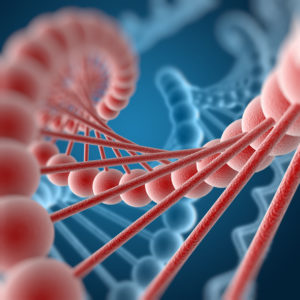A public engagement effort seeks to educate the public about epigenetics, an emerging field of study that’s expanding our understanding of how genes work.
 In recent decades, scientists have discovered that genetic code alone does not explain the behaviors of cells and organisms. Instead, a host of additional biochemical mechanisms are responsible for switching genes on and off, or increasing or decreasing their levels of activity.
In recent decades, scientists have discovered that genetic code alone does not explain the behaviors of cells and organisms. Instead, a host of additional biochemical mechanisms are responsible for switching genes on and off, or increasing or decreasing their levels of activity.
The emerging field of epigenetics encompasses many of these mechanisms. Epigenetic changes are alterations to the DNA that do not change the sequence of a gene, but instead change the way DNA is packaged within cells and expressed. Although not yet a household word, epigenetics has emerged as a controversial and significant field.
Evidence suggests that epigenetic marks can be altered by environmental factors which can significantly influence our development and health. How significant are those changes? Enough that parents seem to be able to pass on some of their acquired epigenetic modifications to their offspring — and perhaps even to second generations. A small but vocal group of researchers suggests the inheritance of these modifications could even change the course of future human evolution.
The Epigenetics Literacy Project (ELP) was launched to provide clear and scientifically rigorous information to educators, journalists, policymakers and the public at large about epigenetics and other related research areas, including the microbiome and endocrine disruption. The online-based ELP resource, supported by an approximately $500,000 grant from the John Templeton Foundation, is dedicated to advancing public knowledge and discourse about this emerging scientific field.
“Epigenetics is not a concept that has yet hit the public consciousness,” says Jon Entine, executive director of the ELP. “Journalists, business leaders, even scientists are referencing epigenetics and often misinterpreting what it is. Our goal is to educate people about this sophisticated subject.”
A Trusted Source for Understanding Epigenetics
ELP is a sister website to the Genetics Literacy Project, which first received funding from the Foundation in 2012 and where Entine also serves as executive director. Like its predecessor, ELP features original content about new scientific findings and public policy controversies, and offering commentary, critiques, and context concerning media stories covering the issues at hand. Readers can also pose questions to the site’s science staff. A separate section of the site allows journalists and policymakers to direct questions to ELP scientists and other experts.
A portion of the ELP’s home page is devoted to Epigenetics University, where visitors can learn the basics of epigenetics. The university section, like the broader ELP site, is organized around eight key areas of public and scientific interest involving epigenetics:
- Nutrition
- Brain & Behavior
- Health & Disease
- Evolution
- Ecology & Climate
- Microbiome
- Agriculture
- Endocrine Disruptors

Jon Entine
The last topic, endocrine disruptors, is a prime example of a subject that urgently requires objective and informed perspectives. Endocrine disruptors are chemicals that can affect the human endocrine system, a network of organs and tissues producing hormones that serve many different biological roles, from organ function to sexual development to sleep patterns.
In certain doses, endocrine disruptors can cause detrimental epigenetic changes. This raises crucial questions about the amount and sources of our exposure to these agents. In some instances, public opinion and governmental regulatory positions have drawn conclusions about these questions before rigorous testing has been completed. In one instance, American and European food safety authorities banned the plastic bisphenol A, or BPA, in infant bottles due to concerns about its estrogen-mimicking properties. However, the ban was enforced in the absence of evidence that humans can absorb BPA in doses capable of disrupting endocrine functions. In cases such as these, ELP aims to foster a broader and deeper grasp of the current state of our scientific knowledge to inform both policy makers and the general public.
“When it comes to cases like endocrine disruption, the science can easily be misunderstood by the public or misused by journalists and activists,” Entine says. “There is a great deal of new, complex data out there about epigenetics, and at the Epigenetics Literacy Project, we aim to make the data useful and understandable.”